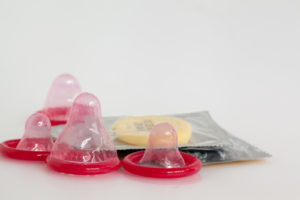Back to Main Page
What are they?
Sexually Transmitted Infections (STIs), also known as Sexually Transmitted Diseases (STDs) or Venereal Diseases (VD) are diseases that are passed on from one person to another through sexual contact. Some diseases can be passed on by kissing and touching each other’s genitals, or via vaginal intercourse, oral sex or anal sex.
Most S.T.Is can be cured with medication but there are some S.T.Is that will stay in your system from when you get infected and can only be treated to reduce the symptoms (HSE, 2016).
How would I know I have an S.T.I?
You may not know you have an STI. Some S.T.I’s don’t have obvious symptoms, so you won’t know that either you or your partner(s) are infected unless you are tested.
If you are sexually active, it is important that you look after your sexual health by getting tested with every new sexual partner you have. Some S.T.I’s can have long lasting consequences if they are left untreated.
If you find that you are worried about having an STI or have experienced any of the following symptoms listed below simply call to the Student Health Service reception to book an appointment to see the nurse who can advise you.
- Unusual discharge from penis or vagina
- Pain while urinating
- Sores or blisters in the area of your genitals
- Itching or irritation inside the penis
- Pain during sex
- Vaginal itching or irritation
Types of S.T.I’s.
When should I get an S.T.I test?
If you are starting a new relationship it is a good idea to get tested to ensure that both of you do not have an S.T.I before you have sexual intercourse.
However if you regularly have sex with new people, it is a good idea to get an S.T.I screening after each sexual encounter.
It is recommended that you get tested if:
- You think you may have an STI
- You have had unprotected sex, including vaginal, oral or anal sex
- The condom you used during sex broke, burst or fell off during sex
- You have shared needles/injecting equipment
- You are starting a new sexual relationship (HSE, 2016)
- Having regular sexual health check-ups are important to ensure you can enjoy a healthy sex life.
How to prevent S.T.Is
Being in a long term relationship where both partners have been tested for S.T.I’s is a way to ensure you won’t get an S.T.I.
Not engaging in sexual intercourse is another means of preventing S.T.I’s. However, should you be sexually active, there is a lot of protection available to stop the contraction of S.T.I’s. It is good to be aware of what you can do to prevent S.T.I’s.
Safe sex means using a barrier method of birth control (eg latex condoms) every time, beginning with the first sexual experience. Condoms are not a guarantee against S.T.Is. The only way to truly prevent getting an S.T.I is by not having sex at all. Condoms, however, can significantly reduce the risk of contracting an S.T.I and HIV.
- Using male/female condoms – Male condoms have been
 proven to be more effective and are available for the students at the Student Welfare office during college hours.Use condoms for the entire sex act.
proven to be more effective and are available for the students at the Student Welfare office during college hours.Use condoms for the entire sex act. - Limiting the number of sexual partners you have – the more sexual partners you have, the more likely you are to contract an S.T.I.
- Be sensible on nights out – Consuming alcohol/drugs can distort your judgement and may lead to having unprotected sex that can put you at risk of contracting an S.T.I.
- Get tested – You can never be sure that a sexual partner does not have an S.T.I. The more sexual partners they have had, the higher the risk of having an S.T.I. If you have a new partner, it’s a good idea for both of you to get tested before having sex.
- Be aware of S.T.I signs and symptoms. Get tested if you think you may have contracted an S.T.I.
- If you use a lubricant, make sure its water based.
Book an S.T.I Screening
If you have any symptoms of an STI, call to see the Student Health Nurse in person today. Alternatively, you can book a routine S.T.I test at the Health Services at I.T. Sligo by making an appointment at the Student Health Service reception here or
Simply call to book an appointment with the local GUM clinic at Sligo University Hospital. Contact Maria on who run S.T.I clinics– 0719170473.